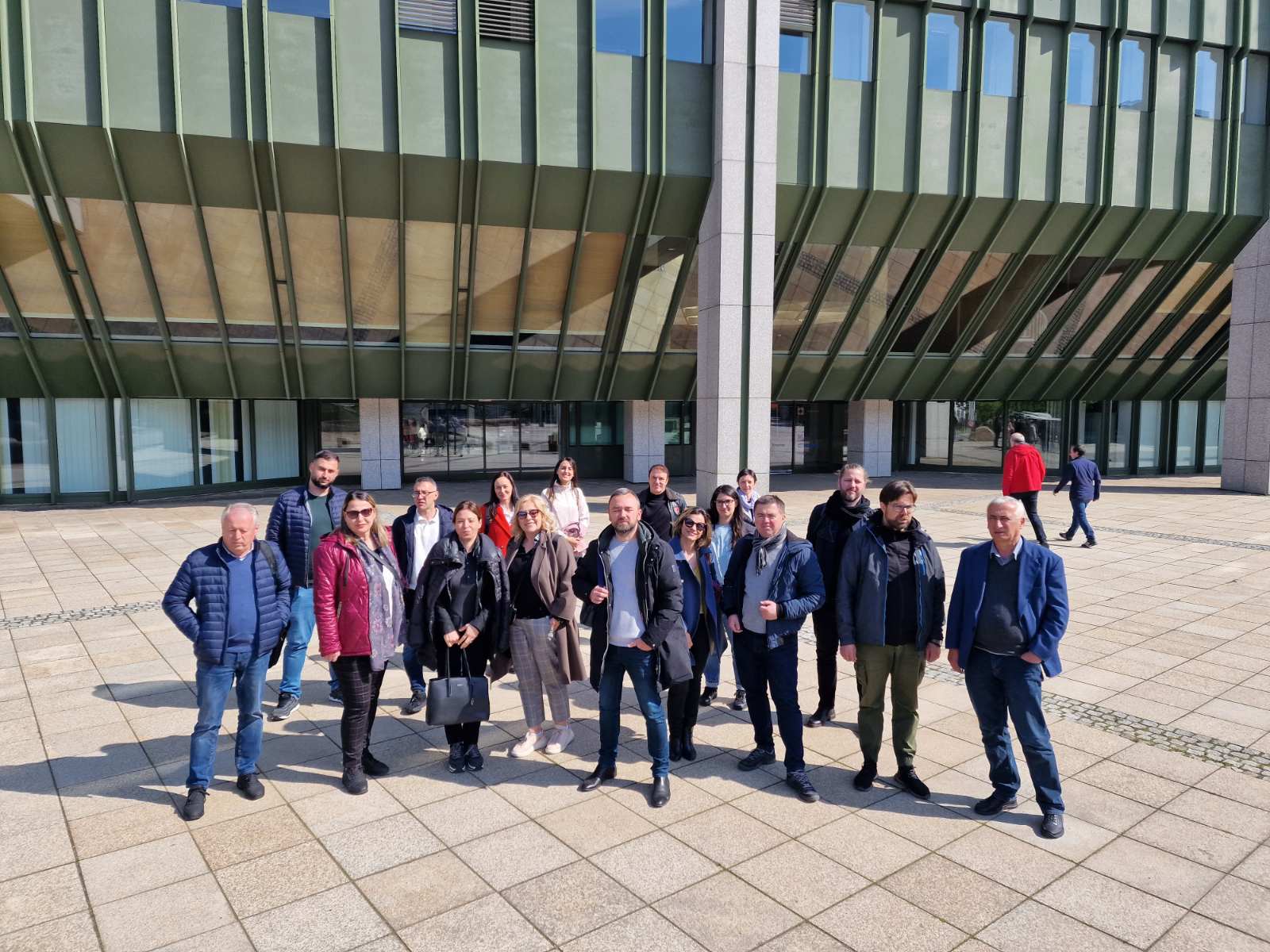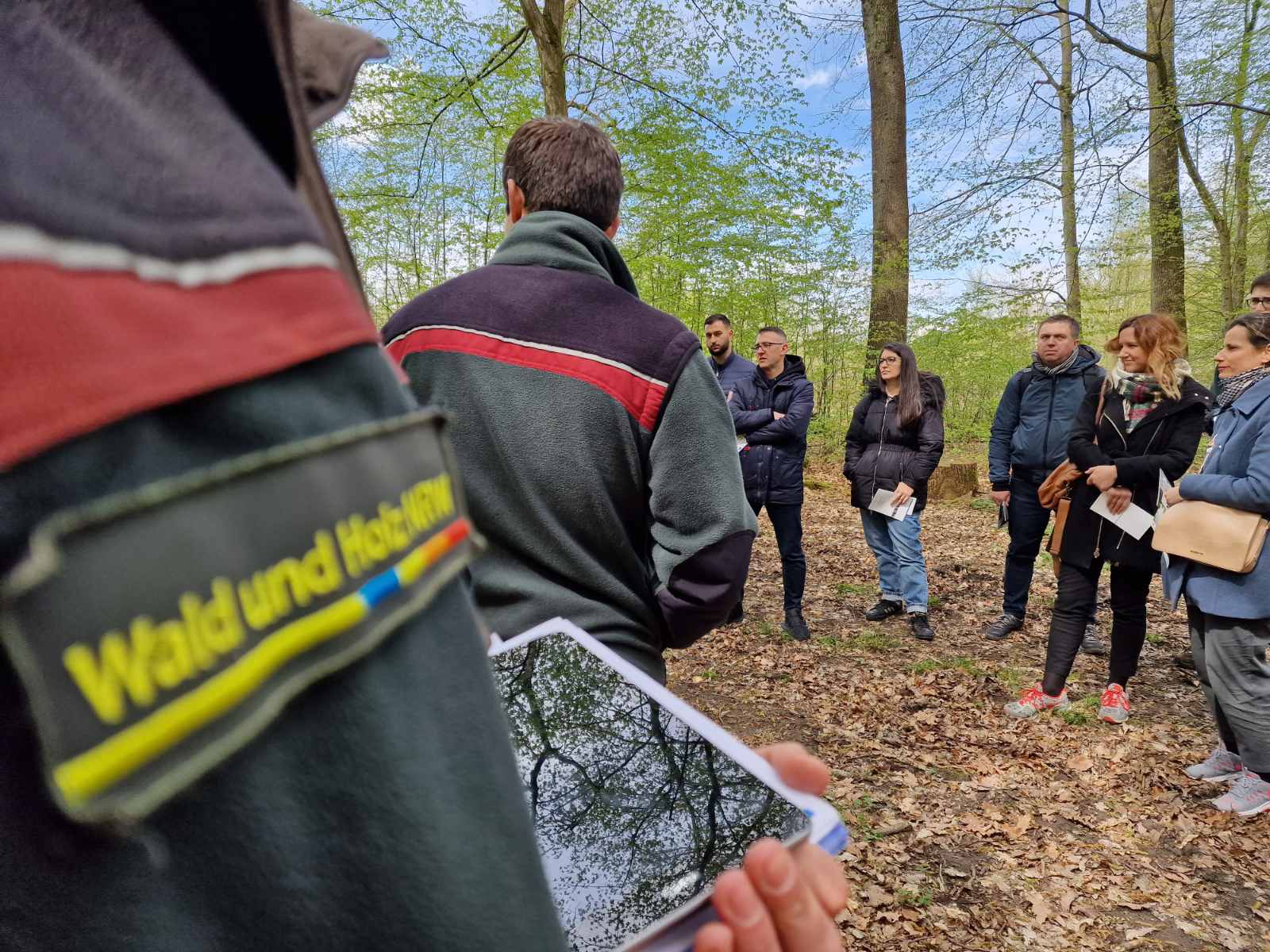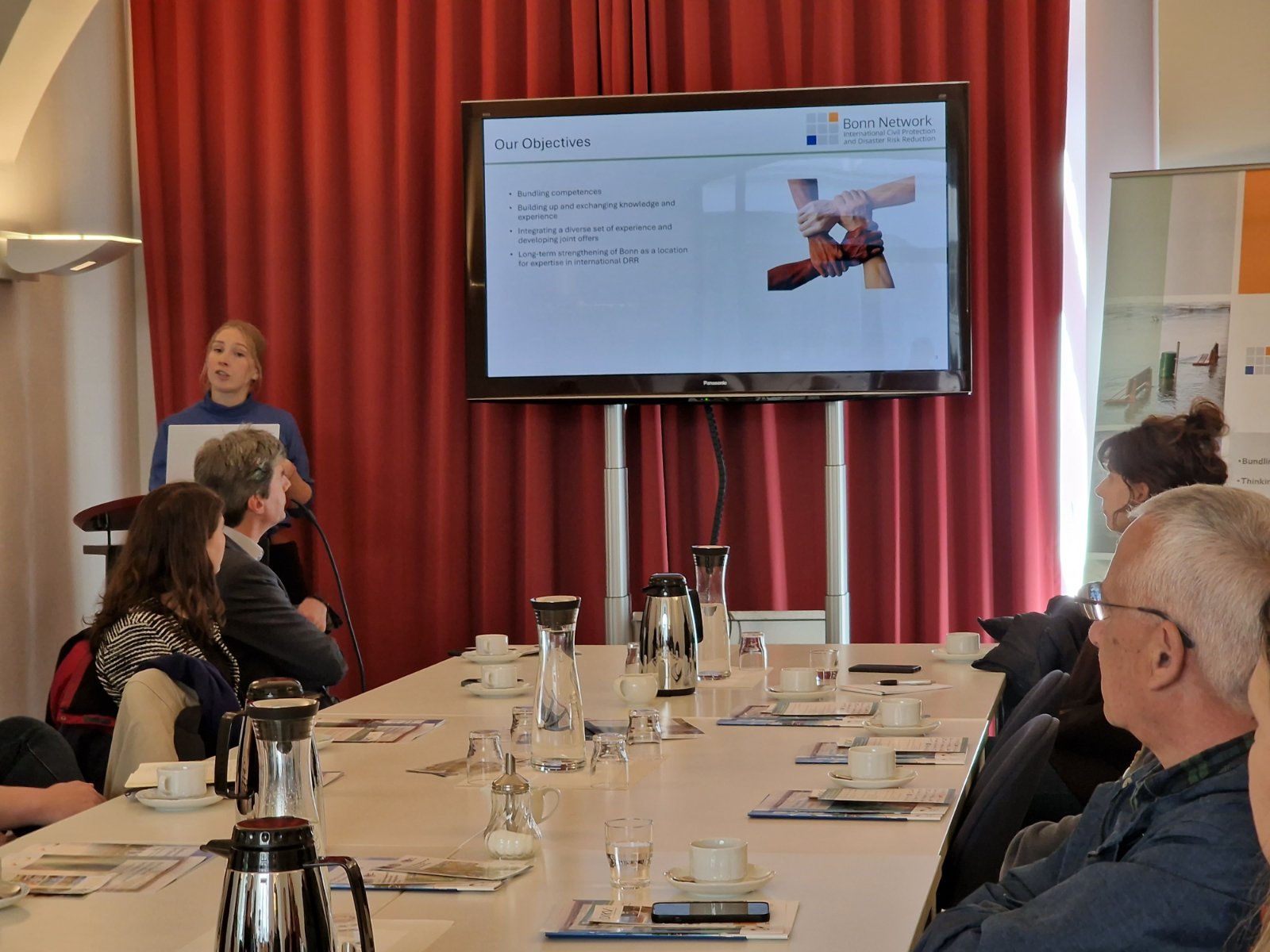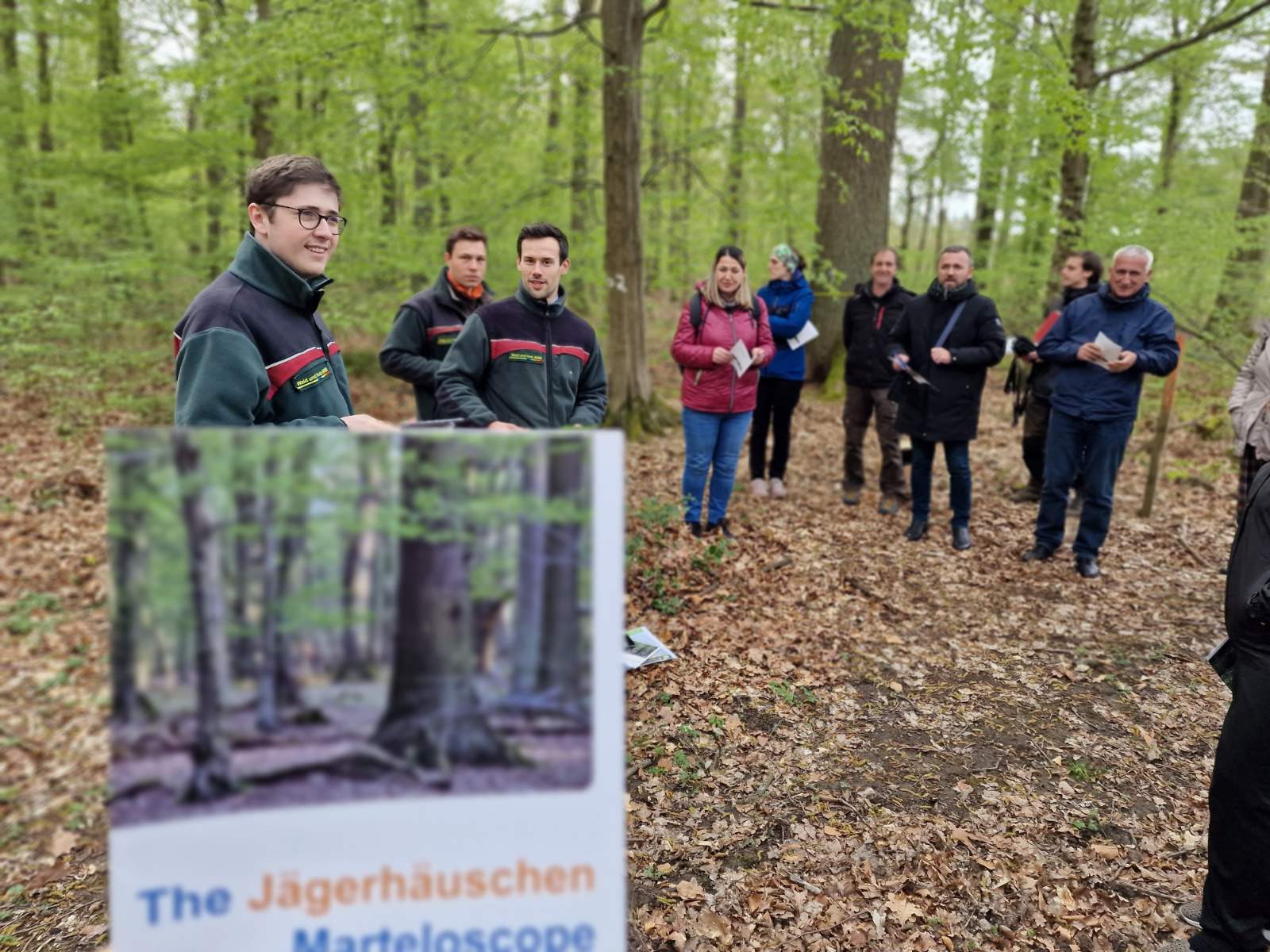Western Balkan Officials on Nature-based Solutions Study Tour to Bonn
Four days of diverse, interesting, and interactive activities brought together decision-makers, practitioners, and policymakers from the Western Balkans and representatives from affiliated UN and government institutions to the City of Bonn to exchange and explore the role of Nature-based Solutions for climate change adaptation
Around 20 decision-makers, natural resource managers, government planners, and practitioners from six Western Balkan economies visited institutions in the City of Bonn, Germany to exchange knowledge and experiences on the role of Nature-based Solutions (NbS) in climate change adaptation, increasing community resilience, and disaster risk reduction.
In a 4-day study visit organised within the framework of the project ADAPT: Nature-based Solutions for resilient societies in the Western Balkans, representatives from relevant ministries and government institutions learned and exchanged practices, expertise, and tools to support the deployment of innovative, financially feasible, and sustainable NbS to reduce disaster risks and effectively adapt to climate change.
“The study tour was a great experience where all participants gained new knowledge about crucial stakeholder involvement and a better understanding of important tools and measures for effective and successful NbS implementation,” stated Zineta Mujaković, Ministry of Environment and Tourism, Bosnia and Herzegovina.
A series of interactive and exciting lectures given by international institutions - UNCCC, UNDRR, ICLEI, and UNCCD - and representatives of national and local government - Federal Ministry of Economic Cooperation and Development (BMZ), Federal Ministry for Food and Agriculture (BMEL), Federal Ministry for Environment, Nature Conservation and Nuclear Safety (BMUV), and the Bonn International Network Civil Protection and Disaster Risk, City of Bonn - sparked motivating conversations with government officials from the Western Balkans economies.
“The goal of this visit was to exchange experiences and knowledge to foster high-level political support for NbS application at scale in the Western Balkan region, based on good practices and lessons learned from global experiences,” explained Mihaela Dragan Lebovics, Senior Nature-based Solutions Project Officer, IUCN Regional Office for Eastern Europe and Central Asia and the ADAPT Initiative Team Leader. “We would like to thank our regional partners for sharing their insights and knowledge, and for their commitment to fostering the employment of NbS and integrating them equitably into climate-smart planning adaptation and disaster reduction policy and planning”.
 Photo: IUCN ECARO
Photo: IUCN ECARO
“We had a great exchange visit were all the western Balkan economies met to share knowledge and experience with international and German institutions on NbS approach and applications. Fruitful discussions and meetings stimulated our vision on the opportunities for applying and integrating NbS measures to our plans and strategies in Albania,” concluded Arduen Karagjozi, Water Resources Management Agency (AMBU), Albania.
Following lectures and discussions at the Federal Ministry for Food and Agriculture, representatives of the Forest Europe Liaison in Bonn and the European Forest Europe Institute organised a field visit to the Jägerhäuschen (Hunter cottage) Forest, a verdant space located only 15 minutes from the Bonn city centre. After learning about climate change adaptation challenges and best practices in the forestry sector, participants were acquainted with Marteloscope, an exercise used in 22 European countries to raise awareness, communicate and even train future foresters in sustainable forest management, taking both the economic and ecological values of trees into account.
 Photo: IUCN
Photo: IUCN
Besides enhancing capacities on the role of NbS for climate, the visit showcased tools and mechanisms with examples of best practices, e.g., knowledge on financing biodiversity measures and an overview of the German Federal National Plan on Nature-based Solutions for Biodiversity and Climate. This will further support key actors from the Western Balkan economies to plan, design, implement and scale NbS interventions in the region sustainably and efficiently.
 Photo: IUCN
Photo: IUCN
“This study tour was a great opportunity to meet and exchange experiences with colleagues from the region and to get acquainted with the exceptional scope of environmental protection and climate change related activities. As a comprehensive concept that fosters multi-stakeholder cooperation, NbS been recognised in recent climate change strategic documents and plans in Bosnia and Herzegovina, as one of the tools that will help to achieve more concrete results in our country,” stated Ozren Laganin, Ministry of Spatial Planning, Civil Engineering and Ecology, Republika Srpska.


